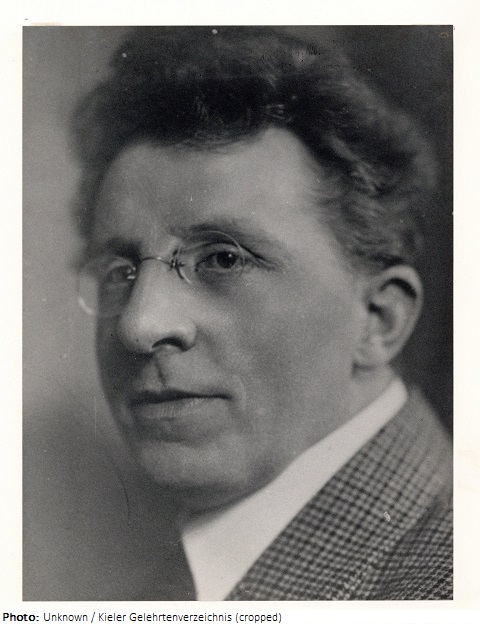
| Roles | Referee |
|---|---|
| Sex | Male |
| Full name | Friedrich Wilhelm "Fritz"•Stein |
| Used name | Fritz•Stein |
| Born | 17 December 1879 in Gerlachsheim, Lauda-Königshofen, Baden-Württemberg (GER) |
| Died | 14 November 1961 (aged 81 years 10 months 28 days) in West-Berlin, Berlin (GER) |
| NOC |  Germany Germany |
Fritz Stein first completed theology studies in Karlsruhe with the state examination and then took courses in musicology in Heidelberg. He then went to Leipzig and completed his musicological education at the University of Heidelberg with a doctorate in 1910.
In 1906 he went to Jena as university music director and city organist. He gained fame when he discovered in the library of the University of Jena the parts of a symphony marked as the work of Ludwig van Beethoven. It was not until 1957 that it was possible to prove that this Jena Symphony was in fact a work by Friedrich Witt (1770-1836). Stein was appointed professor of musicology in Jena in 1913. In 1914 he followed composer Max Reger (1873-1916) as court kapellmeister in Meiningen. During World War I, he directed a male choir for the entertainment of the troops at the front. In 1920 he became associate professor of musicology at the University of Kiel and taught there as full professor from 1928-33.
As early as 1932, he became a member of the anti-Semitic “Kampfbund für deutsche Kultur” (Militant League for German Culture). In 1933 he became director of the music faculty of the Berlin University of the Arts, which he led until the end of World War II in 1945. During the Nazi era, he was instrumental in the “Gleichschaltung” of the musical culture. In the Reichsmusikkammer (Reich Chamber of Music) he was head of the department for choral and folk music. In 1939 he received the Goethe Medal for Art and Science. Because of an admissions-freeze, he could not become a member of the Nationalsozialistische Deutsche Arbeiterparte (NSDAP / Nazi party) until 1940.
Stein published research on the work of Max Reger and wrote essays in numerous journals. He edited works by Johann Christian Bach, Telemann, Händel, Beethoven, and others. After the end of World War II, Stein lost all his posts and worked freelance. Later he became president of the Association for Protestant Church Music. Max Reger was the godfather of his son Max Martin Stein (1911-2001), who became a university teacher as a pianist in Düsseldorf.
| Games | Sport (Discipline) / Event | NOC / Team | Phase | Unit | Role | As | |
|---|---|---|---|---|---|---|---|
| 1936 Summer Olympics | Art Competitions |  GER GER |
Fritz Stein | ||||
| Music, Compositions For Orchestra, Open (Olympic) | Final Standings | Judge | |||||
| Music, Compositions For Solo Or Chorus, Open (Olympic) | Final Standings | Judge | |||||
| Music, Instrumental And Chamber, Open (Olympic) | Final Standings | Judge |